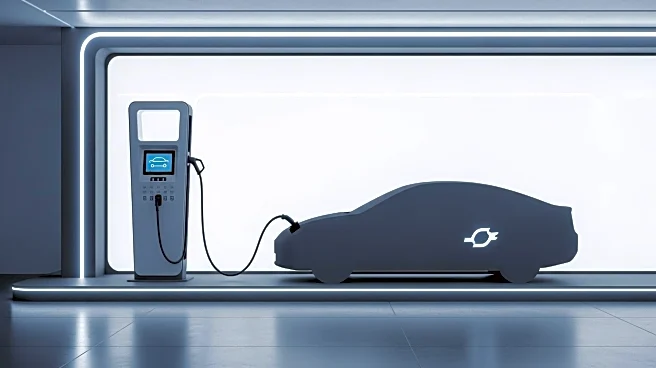What's Happening?
Electric vehicle (EV) tax credits are set to expire soon, affecting incentives for consumers considering a switch to electric or hybrid vehicles. According to a report, the current incentives that have been encouraging consumers to purchase EVs will end next week. John Shumway from KDKA spoke with Em Nguyen from CarFax to discuss the implications for consumers. The expiration of these tax credits means that those who have been contemplating the purchase of an EV or hybrid vehicle may need to act quickly to take advantage of the existing financial benefits. The tax credits have been a significant factor in making EVs more affordable and appealing to a broader range of consumers.
Why It's Important?
The expiration of EV tax credits is significant as it could slow the adoption of electric vehicles in the U.S. market. These incentives have played a crucial role in reducing the upfront cost of EVs, making them competitive with traditional gasoline-powered vehicles. Without these credits, the financial burden on consumers may increase, potentially leading to a decrease in EV sales. This change could impact the automotive industry, particularly manufacturers who have invested heavily in EV technology and infrastructure. Additionally, it may affect environmental goals aimed at reducing carbon emissions through increased EV adoption.
What's Next?
As the expiration date approaches, consumers who are interested in purchasing an EV or hybrid vehicle may rush to finalize their purchases to benefit from the current tax credits. Automotive manufacturers and dealers might also increase promotional efforts to boost sales before the incentives end. Policymakers and industry stakeholders may engage in discussions about the future of EV incentives and explore alternative measures to support the transition to electric vehicles. The outcome of these discussions could shape the direction of U.S. energy and environmental policy.
Beyond the Headlines
The end of EV tax credits raises questions about the long-term strategy for promoting sustainable transportation in the U.S. It highlights the need for a comprehensive approach that includes infrastructure development, such as charging stations, and continued innovation in battery technology. The shift away from tax credits may also prompt a reevaluation of how best to support consumers and manufacturers in the transition to cleaner energy solutions.









